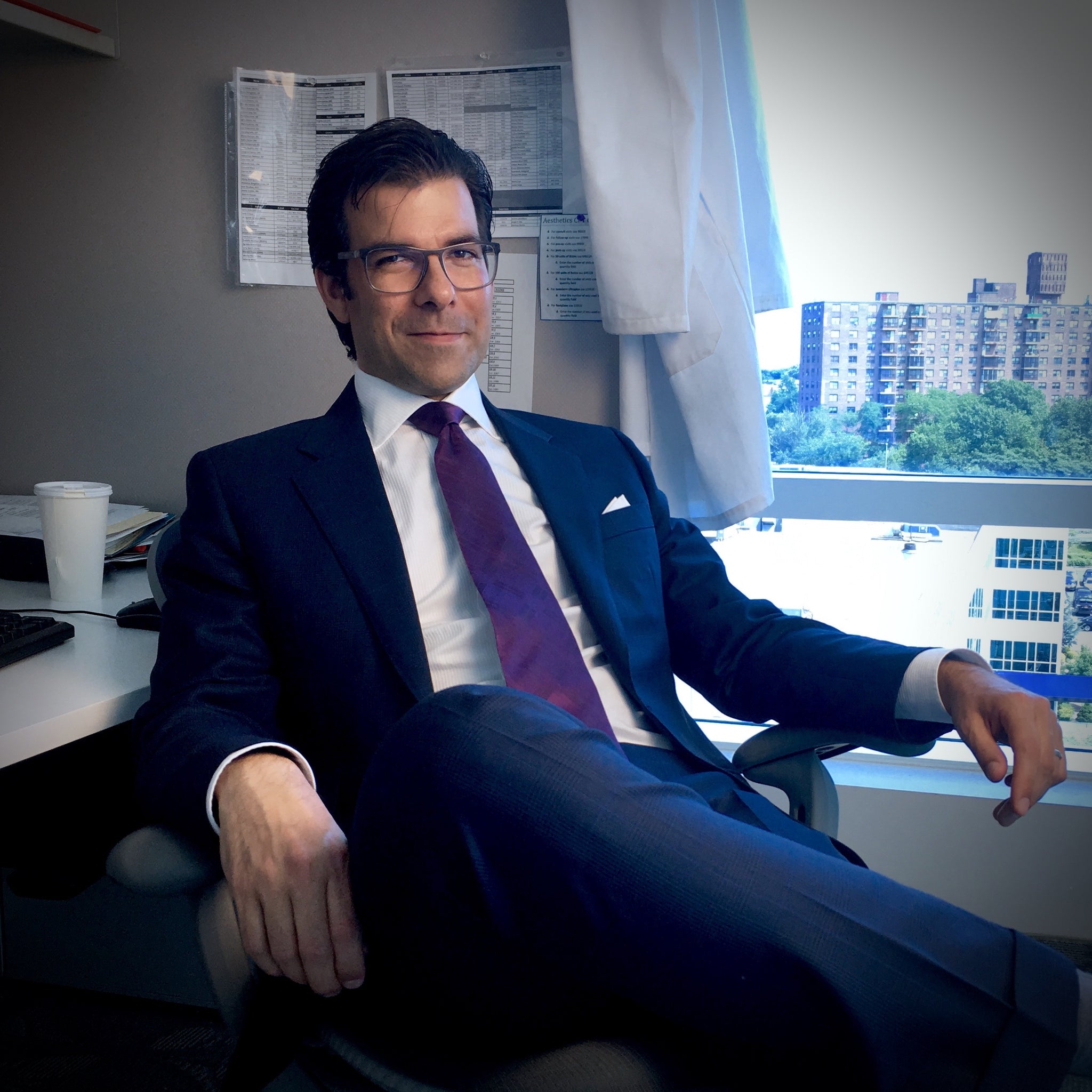
Dr. Lawrence Draper.
LW: Dr. Draper, I remember the first time you came into the store to discuss your upcoming wedding outfit. You were the epitome of "calm and collected" Once you had all the information you required, you left to consider the options that we had presented. Both Will and I remarked, that if we were ever in need of surgery, that's the kind of person you want doing it. So my first question is, are you as calm on the inside as you present on the outside?
Dr. D: Yes, what you see is what you get. Most of the time I am a calm, patient, introspective and rational person. However, like most people living in this city, I get worked up and impatient with inefficiency and when time is wasted. I work in the Bronx and commute from Brooklyn, so my commute is a disaster on my way home. I am prone to road rage that usually hits me about an hour into the evening commute. It is something I am working on...
LW: Tell us about the first surgery that you have performed and what goes through your mind when you open up the body of another human?
Dr. D: My first procedure as an attending surgeon was in 2013. It was an exploration and repair of an ulnar nerve injury in a young man-- a trauma victim. By the time you finish your formal plastic surgery training you have mastered certain basic concepts and principles in reconstructive surgery that allow you to logically think through a surgical problem. So it becomes routine and comfortable to use a knife and scissors and other instruments to navigate the soft tissues, expose the injury and repair it. You can tell a lot about someone’s health when you cut into someone. Does the dermis bleed; does the subcutaneous fat and fascia appear health; are the blood vessels calcified. So, to answer your question, I am thinking about the quality of the patient’s tissues and the clues they provide in how well a patient is going to do with any given procedure. What problems may they have in the post-op period? How well are they going to heal their surgical wound and exactly how difficult is this procedure going to be?
LW: You recently spent time in Europe educating yourself in the field of Sex Reassignment Surgery. What has drawn you to this highly specialized and fascinating practice?
Dr. D: Plastic surgery is, at its core, about shaping or molding the body to either reconstruct form and function or to improve aesthetics. Vaginoplasty or making a penis into a vagina is truly a transformative procedure that captures the essence of my field. It is interesting, technically demanding surgery that dramatically improves quality of life for the right transgender patients.
LW: Obviously both, male to female and female to male are extremely complicated procedures, but is one more
complicated that the other?
Dr. D: Yes! Making a penis is quite difficult. However, making a vagina out of penis, especially if large and uncircumcised, is much easier in comparison.
LW: We've all seen the TV versions of surgeons busy at work listening to everything from AC/DC to Pavarotti, is that common practice and if so, what is on your current playlist?
Dr. D: I play music in the OR all the time. It keeps things moving and creates a more pleasant work environment. The artist or genre depend on what is happening, but last few playlist have been heavy on:
Jonny Cash, The Chainsmokers, Calvin Harris, Jeff Buckley, Chris Cornell -- God rest his soul, Soundgarden, Temple of the Dog and Audioslave.
LW: I discovered on your bio that you are an avid Ice Climber. Tell us what draws you to such an extreme pastime?
Dr. D: I use to be…I use to go on ice and rock climbing trips for my vacations. I was drawn to the adrenaline rush of the exposure and the sense of accomplishment from solving a difficult mental and physical problem. Climbing was a great way to see places like New Zealand, Nepal and the Canadian Rockies. But now, since I became a surgeon and especially after I got married, vacations involve less risk and more luxury.
LW: Thank you for your time Dr.
